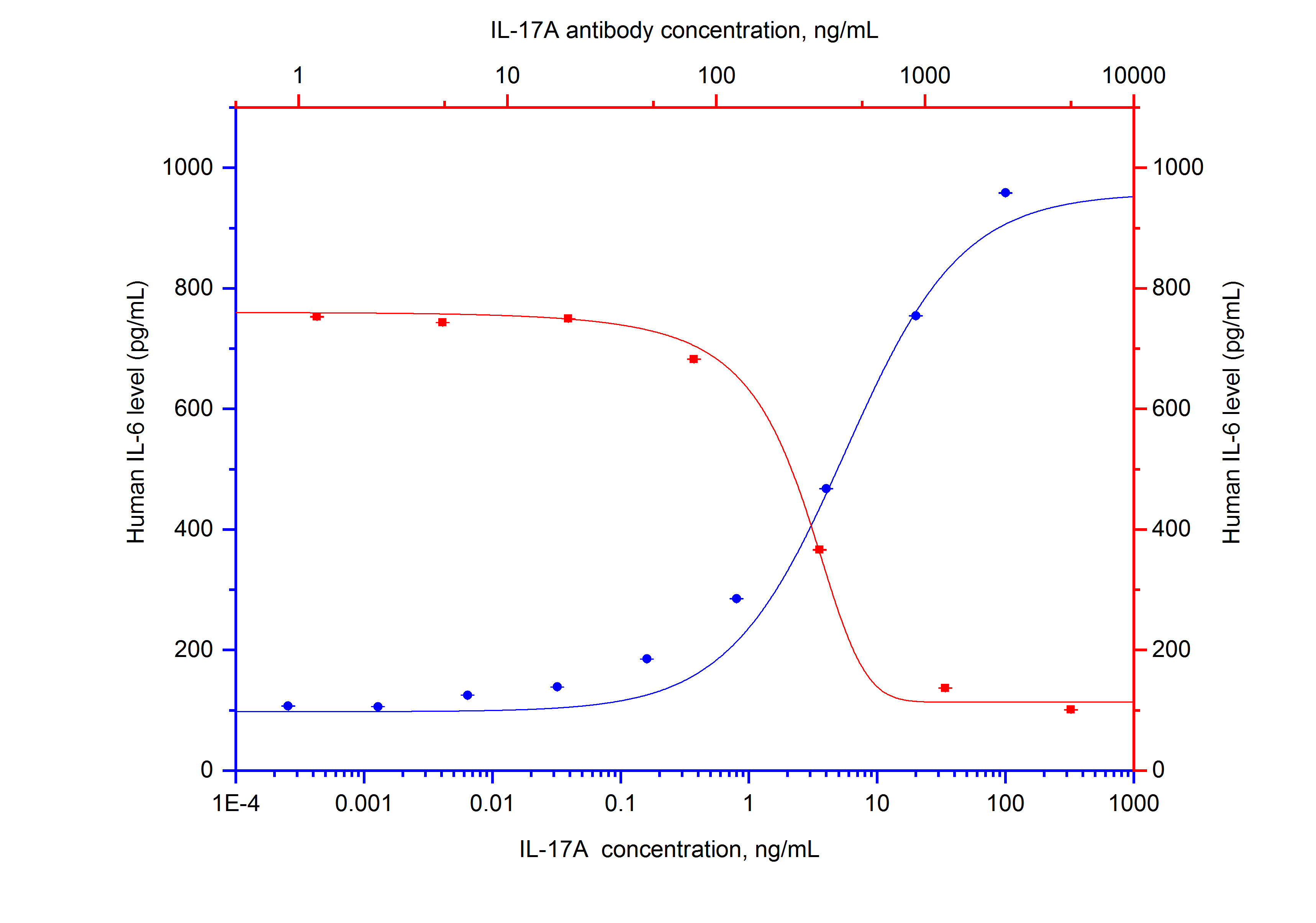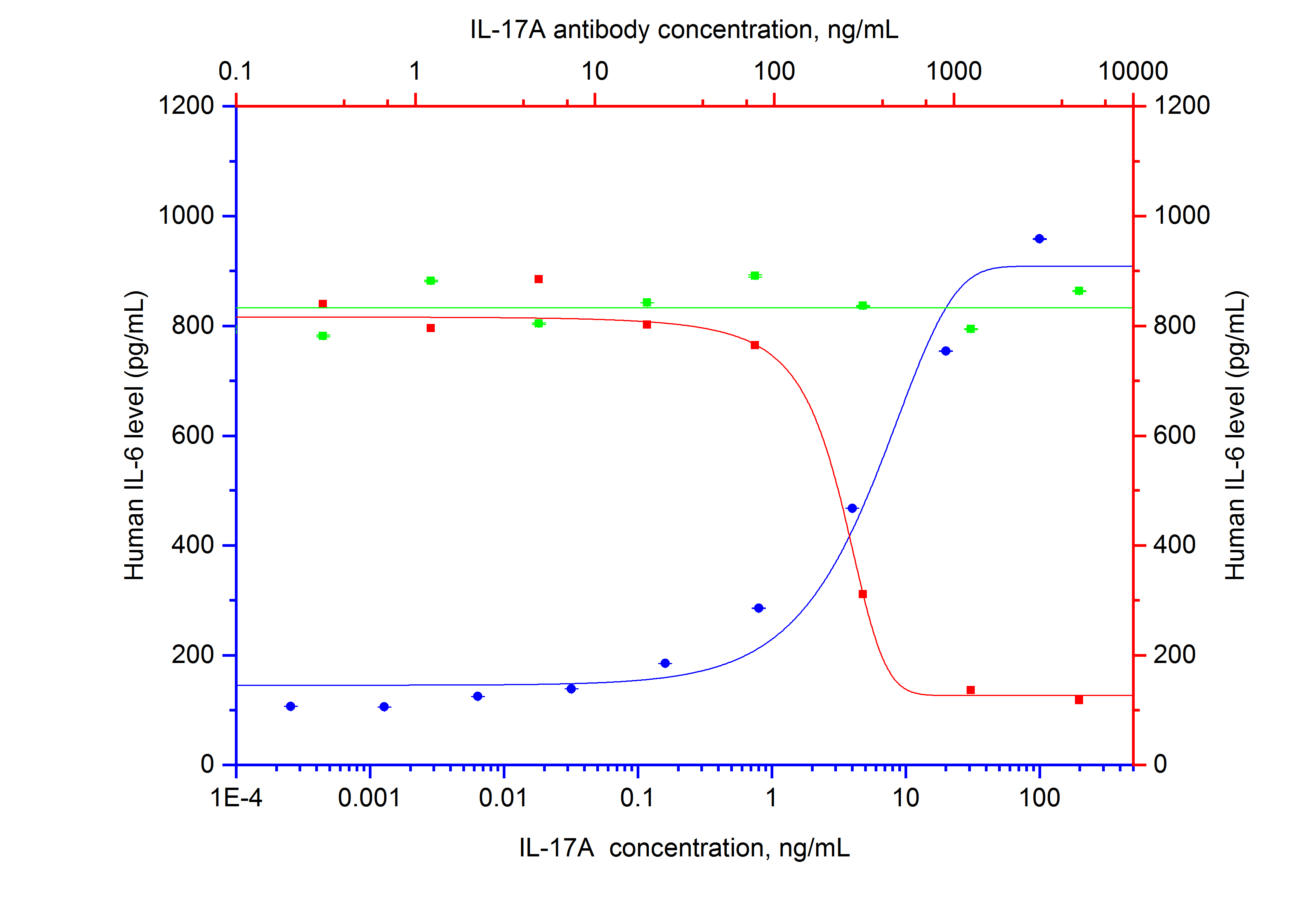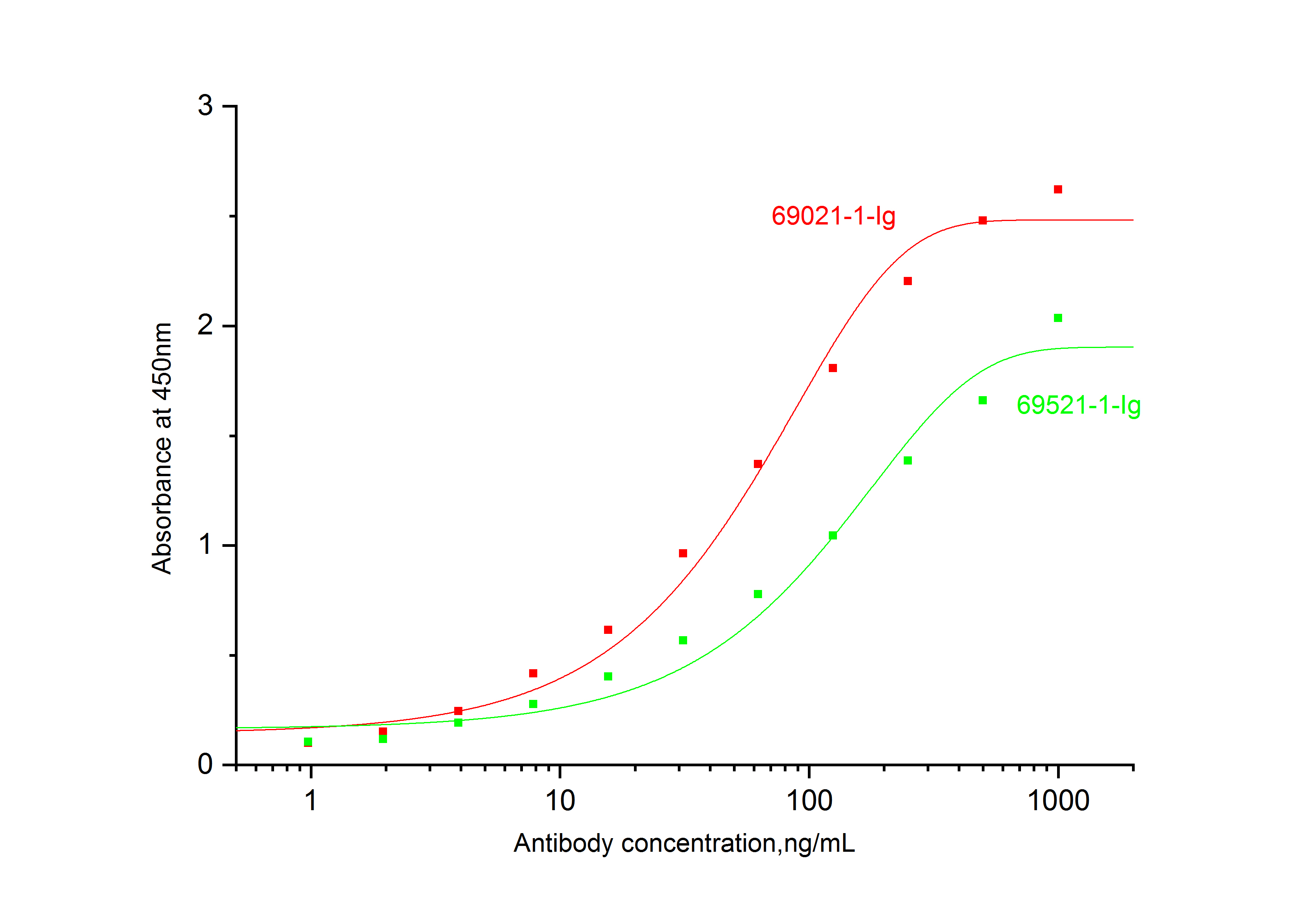验证数据展示
| Neutralization | HT-1080 cell |
产品信息
69021-1-Ig targets NeutraKine® IL-17A in Neutralization, ELISA, Cell treatment applications and shows reactivity with human samples.
| 经测试应用 | Neutralization, ELISA Application Description |
| 文献引用应用 | Neutralization, Cell treatment |
| 经测试反应性 | human |
| 文献引用反应性 | human |
| 免疫原 |
Recombinant Protein 种属同源性预测 |
| 宿主/亚型 | Mouse / IgG1 |
| 抗体类别 | Monoclonal |
| 产品类型 | Antibody |
| 全称 | interleukin 17A |
| 别名 | IL 17, IL17, IL-17, IL17A, 1F3E3 |
| 基因名称 | IL-17A |
| Gene ID (NCBI) | 3605 |
| ENSEMBL Gene ID | ENSG00000112115 |
| RRID | AB_2918841 |
| 偶联类型 | Unconjugated |
| 形式 | Lyophilized Powder |
| 纯化方式 | Protein G purification |
| UNIPROT ID | Q16552 |
| 储存缓冲液 | Sterile PBS, pH 7.4. |
| 内毒素 | <0.1 EU/μg |
| 复溶 | This product was lyophilized from a 0.2 μm filtered solution in PBS. Reconstitute at 1.0 mg/mL in sterile H2O before use. |
| 稳定性与储存 | Lyophilized antibodies are stable for 1 year from the date of receipt if stored between (-20°C) and (-80°C). Upon reconstitution we recommend that the solution can be stored at (4°C) for short term or at (-20°C) to (-80°C) for long term. Repeated freeze thaw cycles should be avoided with reconstituted products. |
背景介绍
IL17A, also named as IL-17, is a proinflammatory cytokine. IL-17, synthesized only by memory T cells and natural killer cells, has pleiotropic effects, mainly in the recruitment and activation of neutrophils. This cytokine regulates the activities of NF-kappaB and mitogen-activated protein kinases. This cytokine can stimulate the expression of IL6 and cyclooxygenase-2 (PTGS2/COX-2), as well as enhance the production of nitric oxide (NO). High levels of this cytokine are associated with several chronic inflammatory diseases including rheumatoid arthritis, psoriasis and multiple sclerosis. The IL-17 receptor is a type I transmembrane protein, that is widely expressed on epithelial cells, fibroblasts, B and T cells, and monocytic cells. In psoriatic skin lesions, both Th17 cells and their downstream effector molecules, e.g. IL-17 and IL-22, are highly increased.
This antibody can be used to neutralize the bioactivity of IL-17A.
发表文章
| Species | Application | Title |
|---|---|---|
Int J Chron Obstruct Pulmon Dis IL-17A Promotes Epithelial ADAM9 Expression in Cigarette Smoke-Related COPD | ||
JCI Insight Targeting mTOR with a sirolimus-eluting airway stent reduces pro-fibrotic TH17-cells and inhibits laryngotracheal stenosis | ||
Cell Mol Gastroenterol Hepatol Fatty Acid Oxidation Promotes Apoptotic Resistance and Proinflammatory Phenotype of CD4+ Tissue-resident Memory T cells in Crohn's Disease |




